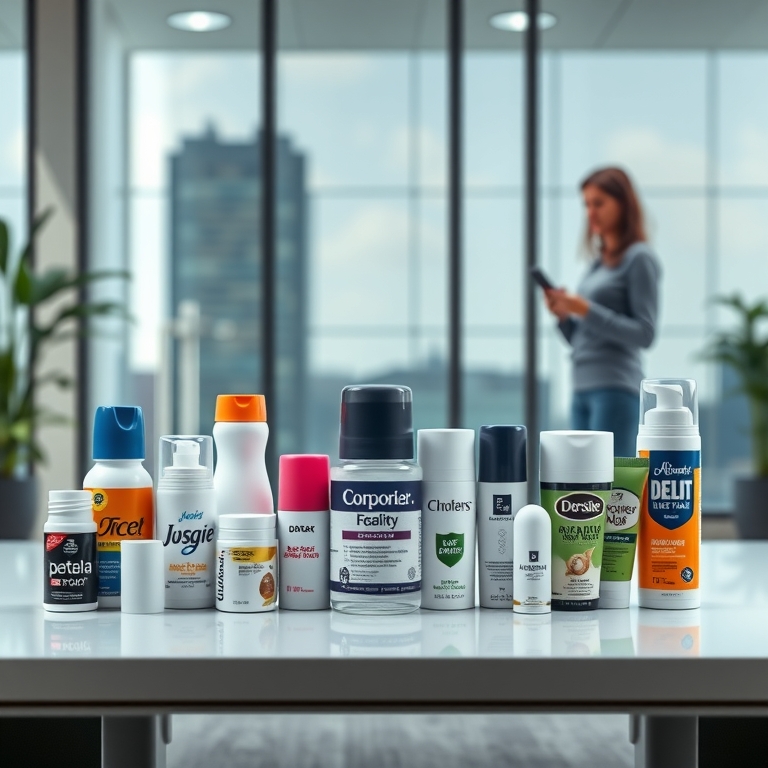In a significant move that underscores the ongoing vigilance of regulatory bodies to ensure consumer safety, the United States Food and Drug Administration (FDA) has announced the recall of several deodorant products due to concerns over benzene contamination. This decision sends ripples through the personal care industry, highlighting the critical importance of rigorous quality control measures and the constant need for vigilance in product safety standards. As deodorants are a staple in the daily hygiene routines of millions, this recall has understandably garnered substantial attention and concern from both consumers and the business sector.
Benzene, a chemical compound traditionally used in the manufacturing of numerous industrial products, is classified as a carcinogen by health agencies worldwide, including the World Health Organization (WHO) and the Centers for Disease Control and Prevention (CDC). Known for its sweet odor, benzene is used in the manufacture of plastics, resins, and synthetic fibers. However, its presence in consumer goods, particularly those applied directly to the skin, poses significant health risks. Prolonged exposure to benzene is linked to harmful effects on bone marrow and can lead to blood disorders such as leukemia. Hence, its detection in consumer products, especially in personal care items like deodorants, raises immediate red flags.
The FDA’s recall action is a response to independent laboratory tests and consumer complaints that unveiled the presence of benzene in certain deodorant products. While the concentrations detected varied, the mere presence of this chemical in products intended for daily use is alarming. The recall is part of the FDA’s broader mandate to protect public health by ensuring that foods, drugs, and cosmetics are safe and sanitary. This recent move illustrates the agency’s proactive approach to potential health risks and serves as a reminder of the dynamic nature of regulatory oversight.
For businesses, this recall represents a critical moment for introspection and reaffirmation of their commitment to consumer safety. Companies involved in the manufacturing and distribution of the recalled products are now tasked with the challenging endeavor of rebuilding consumer trust. Transparency will be key as these companies navigate the complexities of addressing safety concerns while maintaining brand reputation. Open communication with consumers, clear instructions on product returns and refunds, and swift rectification measures will be essential steps in mitigating the fallout from this recall.
Businesses must also revisit their supply chain protocols and quality assurance processes to prevent future occurrences of such nature. This incident is a potent reminder of the intricate web of responsibilities that companies shoulder when delivering products to market. From sourcing raw materials to the final production stages, each link in the supply chain must be scrutinized to ensure compliance with safety standards. As the deodorant recall sheds light on potential vulnerabilities within the production process, it also provides an impetus for companies to enhance their internal controls and safety checks.
For consumers, the recall necessitates prompt action. The FDA has urged individuals who have purchased the affected deodorant products to discontinue their use immediately and follow the recall instructions provided by the manufacturers. This preventive measure is crucial to mitigate any potential health risks associated with benzene exposure. Consumers are also encouraged to report any adverse reactions or health concerns to the FDA’s MedWatch program, which plays a pivotal role in monitoring the safety of products on the market.
In the broader context, the deodorant recall raises important questions about the efficacy of current regulatory frameworks and industry standards in ensuring product safety. It brings into focus the need for continuous improvement in testing methodologies and regulatory oversight to keep pace with evolving scientific understanding and technological advancements. The presence of benzene in deodorants, a product category not typically associated with such risks, highlights the necessity for a comprehensive approach to safety that encompasses even the most innocuous-seeming consumer goods.
Looking forward, this incident could catalyze changes in industry practices and regulatory policies. It may prompt a reevaluation of the permissible thresholds for contaminants in personal care products and spur innovations in testing technologies to detect potential hazards more effectively. Additionally, it underscores the importance of consumer education in fostering informed decision-making and encouraging proactive engagement with product safety information.
In conclusion, the FDA’s recall of deodorants over benzene concerns serves as a clarion call for both businesses and consumers. It underscores the unwavering commitment required from manufacturers to uphold safety standards and protect public health. For consumers, it highlights the importance of staying informed and vigilant about the products they use. As the situation unfolds, it is imperative for all stakeholders to work collaboratively to address the issues at hand and ensure that safety remains at the forefront of product development and regulatory oversight. This event is a reminder that in the world of consumer goods, vigilance, transparency, and a steadfast commitment to safety are not just ideals, but essential practices that safeguard public trust and well-being.

Leave a Reply